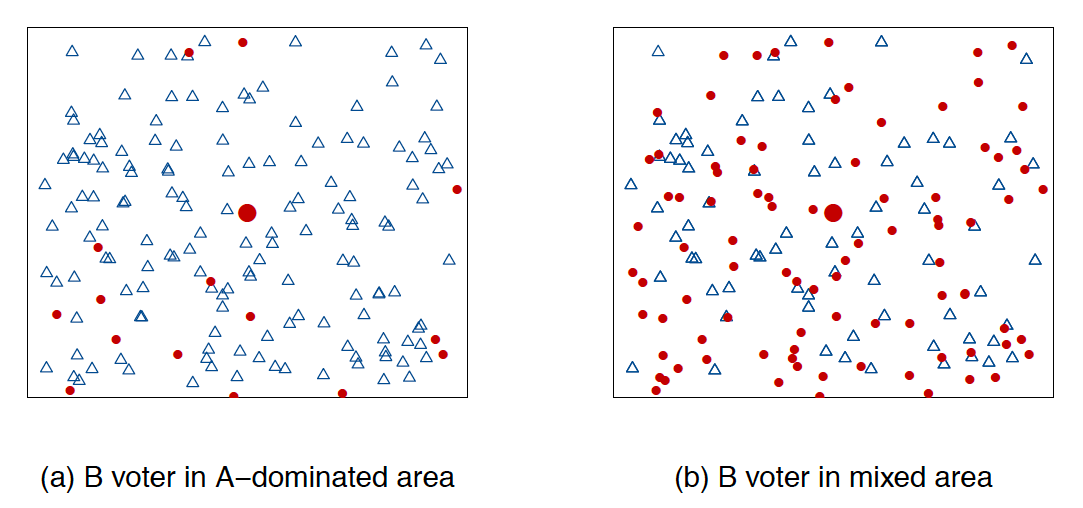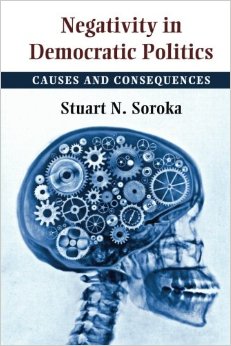Feb 20, 2015 | Foreign Affairs, International, Profile
Post developed by Katie Brown in coordination with Ugo Troiano.
This post is part of a researcher profile series that explores how Center for Political Studies (CPS) researchers came to their work. Today we profile Ugo Troiano, Faculty Associate in CPS and Assistant Professor in the Department of Economics.
 Growing up in Taranto, Italy, Ugo Troiano became fascinated with debate over the local steel factory. He followed discussions of how dormant policies could influence economics. This opened Troiano to a bigger question: How can policies improve the life of the people?
Growing up in Taranto, Italy, Ugo Troiano became fascinated with debate over the local steel factory. He followed discussions of how dormant policies could influence economics. This opened Troiano to a bigger question: How can policies improve the life of the people?
Troiano already loved the social sciences and math. In economics, he found a fusion of the two and a toolbox to tackle this big question. He studied economics at Bocconi University. During his junior year, Troiano studied abroad at the University of Pennsylvania. This experience opened his eyes to the fruitful research environment of U.S. universities. After graduating from Bocconi, he enrolled in Harvard University’s Department of Economics to pursue a Ph.D.
For his dissertation, Troiano continued to explore the question of how policies can improve lives. In particular he looked at (1) how fiscal restrains can reduce government debt, (2) how a government program to combat tax evasion impacted vote choice, and (3) how maternity leave policies reflect gender equality.
Troiano continues to explore the central question of his research, studying how political incentives shape the implementation and consequences of public policies, using both traditional economic tools and tools from other social sciences, especially psychology, linguistics, sociology and political science. He joined the Department of Economics at the University of Michigan in 2013. He joined the Center for Political Studies, which he sees as reflecting the political science underpinnings of his work, in the fall of 2014.
Feb 11, 2015 | Elections, International
Post developed by Katie Brown and Nahomi Ichino.
In many new democracies in developing countries, political parties are identified with particular ethnic groups, and voters tend to vote for the parties identified the same ethnicity as themselves – but not always.
Assistant Professor of Political Science and faculty associate of the Center for Political Studies (CPS) Nahomi Ichino addresses this issue in a recent article with Noah Nathan published in American Political Science Review.
Voters tend to believe that politicians will reward their co-ethnic supporters by building schools and health facilities and providing other services that benefit a limited local area. For voters who live among mostly people of their own ethnic group, it makes sense to vote for the party of their own group.
But voters sometimes find themselves living in an area dominated by another group or in a mixed area, and the calculation is more difficult. Take for example the first visualization (a) offered by the authors. A voter (circle) is surrounded by others of a different ethnicity (triangles). That voter might do better if a party of the other group (triangles) won the election and directed more benefits like schools to this area than if the party of her own group (circles) won the area and directed benefits to a different area with many of her own group (circles). If that same voter were in (b), where she is surrounded by more members of her own group (circles), then she becomes more likely to vote for the party of her own group than if she were in (a).
Voter Ethnicity Illustration

Ichino and Nathan tested these predictions Ghana. First, the authors mapped ethnic concentration and diversity with data from the 2000 Ghana Population and Housing Census. Then, they geocoded polling stations results to look at how elections results vary with local ethnic composition in rural areas.
Ichino and Nathan first focused on the 2008 presidential election results in Ghana’s Brong Ahafo, a region that is both rural and ethnically diverse and find support for their ideas. Polling stations in areas surrounded by more Akans had higher vote shares for the political party associated with the Akan. The authors also tested their hypothesis with survey results from the Afrobarometer. They similarly find that Ghanaians were more likely to intend to vote for a political party associated with an ethnic group when they were surrounded by more members of that group.
The authors believe their findings nuance the generally accepted idea that people in new democracies simply vote for candidates who share their ethnicity. Ichino and Nathan conclude that their study “demonstrates how local community and geographic contexts can modify the information conveyed by ethnicity and influence voter behavior.”
Feb 5, 2015 | Current Events
Post developed by Katie Brown and Stuart Soroka.
 News content is dominated by negativity. Does this have negative consequences for political attitudes, or interest, or policymaking? Professor of Communication Studies and Center for Political Studies (CPS) researcher Stuart Soroka considers these questions in his book Negativity in Democratic Politics.
News content is dominated by negativity. Does this have negative consequences for political attitudes, or interest, or policymaking? Professor of Communication Studies and Center for Political Studies (CPS) researcher Stuart Soroka considers these questions in his book Negativity in Democratic Politics.
Drawing on a combination of survey data, lab experiments, and large-scale content analyses, Soroka finds strong evidence for both the predominance of negative information in political news, and the increased impact this negative information has on public attitudes (in contrast with positive information). He finds, for instance, that negative information has a stronger impact than positive information on individuals’ assessments of political candidates. He finds that individuals are more physiologically activated by negative news. At the aggregate level, Soroka also finds that negative magazine covers sell more copies than positive versions; and that negative shifts in the economy have a bigger impact on public opinion than do positive shifts. Interestingly, this holds true across many different countries, as Soroka’s analyses include most OECD countries. Negativity biases are not just an American peculiarity, then – they are evident around the world.
What are the consequences of all this negativity? Soroka suggests that a negativity bias may well be an efficient way of dealing with very complex information environments. There is just too much information about politics for us to keep track of it all, and selecting information based on negativity might be one useful way of focusing on the information that matters most. As a consequence, humans focus on negative information; and we seem to have designed institutions that focus on the negative as well. That said, there may be long-term consequences of a political information environment that is predominantly negative. So while assessing the long-term impact of negativity is difficult, it is probably an important step in both understanding political behavior and in developing objectives for the design of mass media and political institutions.
 Growing up in Taranto, Italy, Ugo Troiano became fascinated with debate over the local steel factory. He followed discussions of how dormant policies could influence economics. This opened Troiano to a bigger question: How can policies improve the life of the people?
Growing up in Taranto, Italy, Ugo Troiano became fascinated with debate over the local steel factory. He followed discussions of how dormant policies could influence economics. This opened Troiano to a bigger question: How can policies improve the life of the people?


